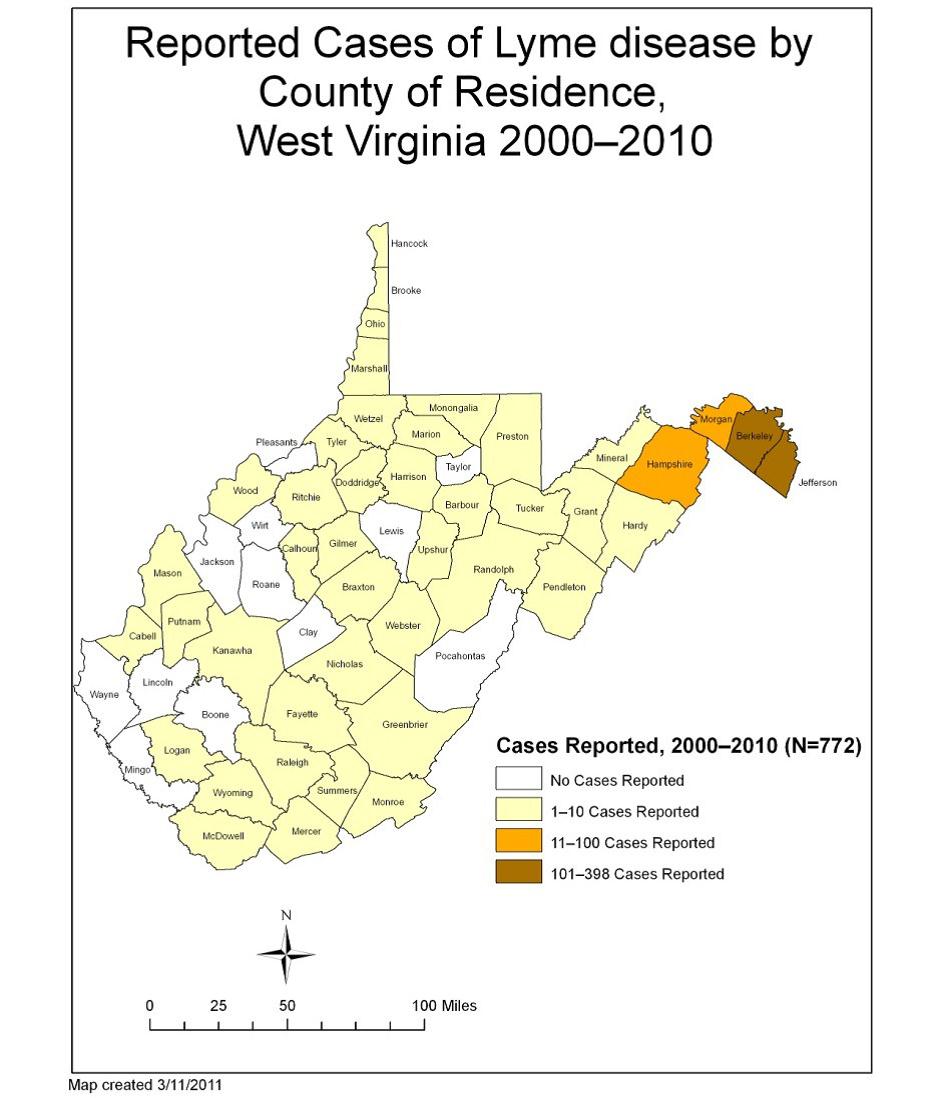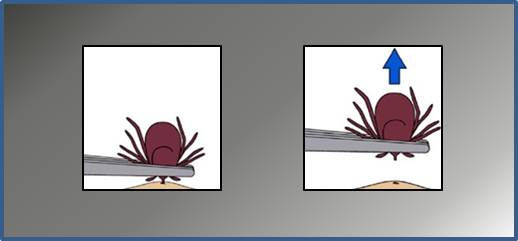Does Lyme Disease Occur in West Virginia?
Lyme disease is the most common tick-borne disease in West Virginia. Most human cases occur in the eastern panhandle of the state (Jefferson, Berkeley, Morgan counties), but the tick that carries Lyme disease (blacklegged tick, Ixodes scapularis) has been found in other parts of the state.
Initial symptoms include fatigue, headache, fever, stiff neck and a characteristic ‘bulls-eye’ rash. If left untreated, patients may develop problems with joints,nervous system or heart. What other tick-borne diseases occur in West Virginia?
|
 |
What Other Tick-borne Diseases Occur in WV?
All other tick-borne diseases – anaplasmosis, ehrlichiosis and Rocky Mountain spotted fever -- are rare in West Virginia (fewer than 10 cases per year). People with these tick-borne diseases develop headache, fever, and rash. These diseases can be hard to diagnose, so remember to tell the doctor if the ill person has recently been in tick habitat (woods or weeds). The doctor must start treatment early if the ill person is to recover.
How Can Campers Protect Themselves Against Ticks?
- Pack long pants, long-sleeved shirts, and socks in your child’s trunk. Light colors are best so ticks can be easily spotted crawling on clothing.
- Pack a bottle of insect repellent with 20% DEET in your child's trunk. Read the directions on the repellent and make sure your child knows how to use it properly.
- Ticks like wooded environments with extensive leaf litter and shade or abandoned fields and overgrown lawns ("woods and weeds"). If your child goes into an area with "woods and weeds", he or she should:
- If possible, remain on cleared trail paths.
- If possible, wear long-sleeved shirts and long pants. Your child can even tuck his or her pants into his or her socks.
- Apply insect repellents containing 20% DEET to exposed skin, particularly near the base of pant legs or ends of sleeves. Follow label instructions carefully.
- Team up with a buddy and do a tick check after getting back to camp.
- Take a shower after getting back to camp to dislodge small ticks not embedded in the skin.
How Should Ticks Be Removed?
- At camp, your child should ask an adult for help if he/she finds a tick.
- Ticks should be removed with a pair of fine tipped tweezers.
- With the tweezers, grasp the tick firmly and as close to the skin as possible.
- Pull the tick steadily and gradually away from the body.
- Cleanse the tick bit site with soap and warm water.
|
 |
Want to Learn More?